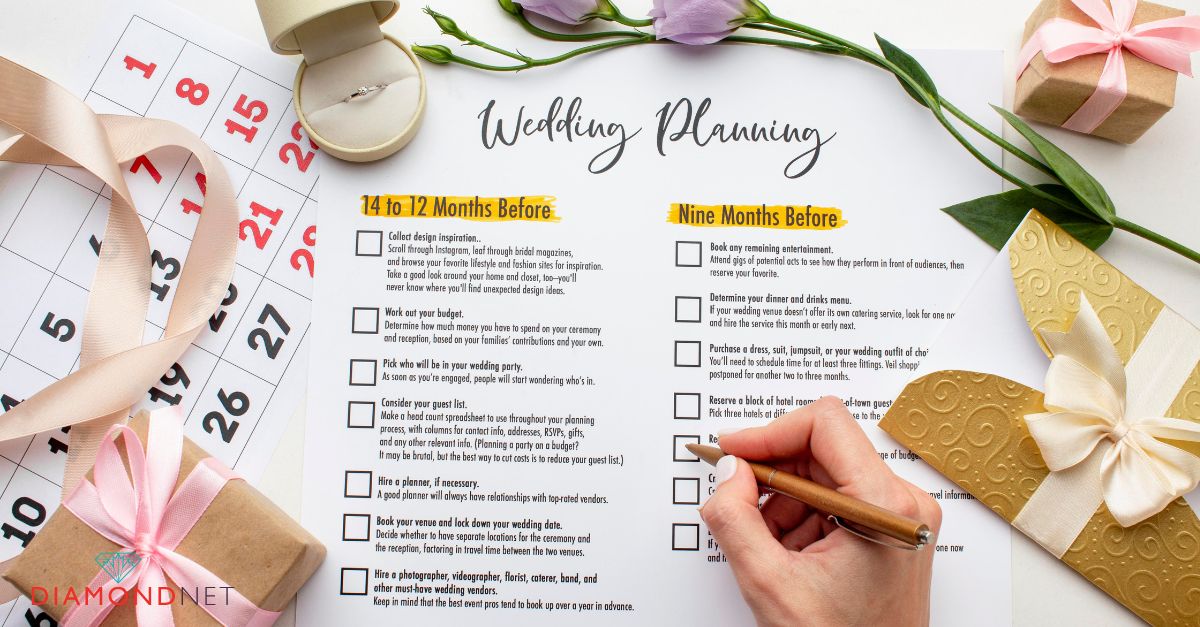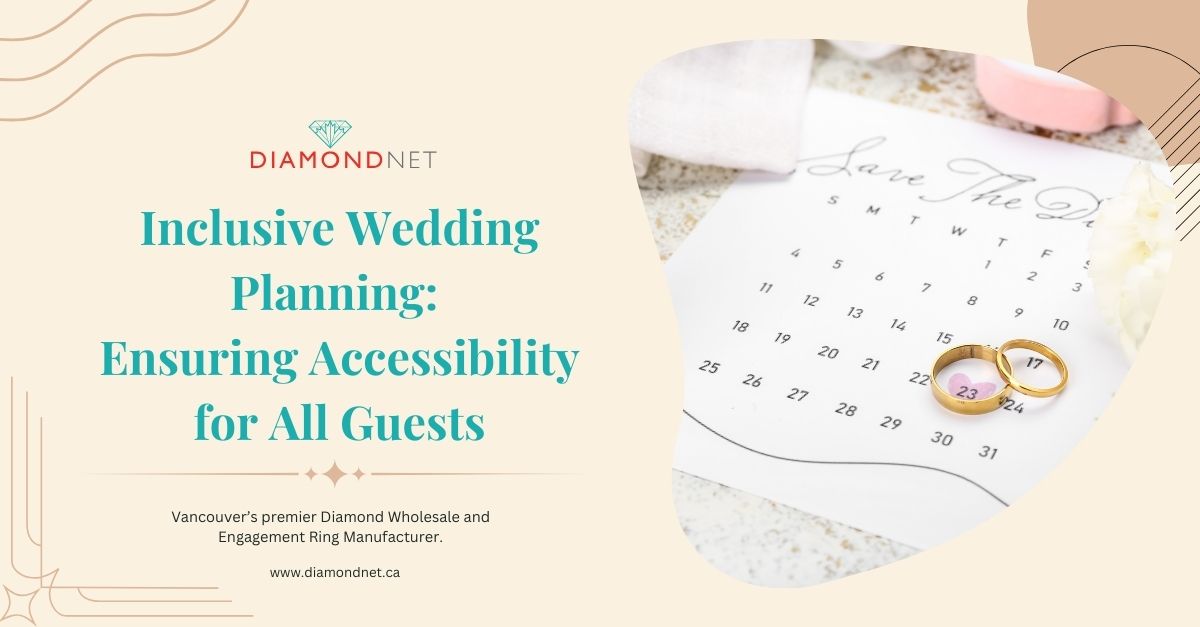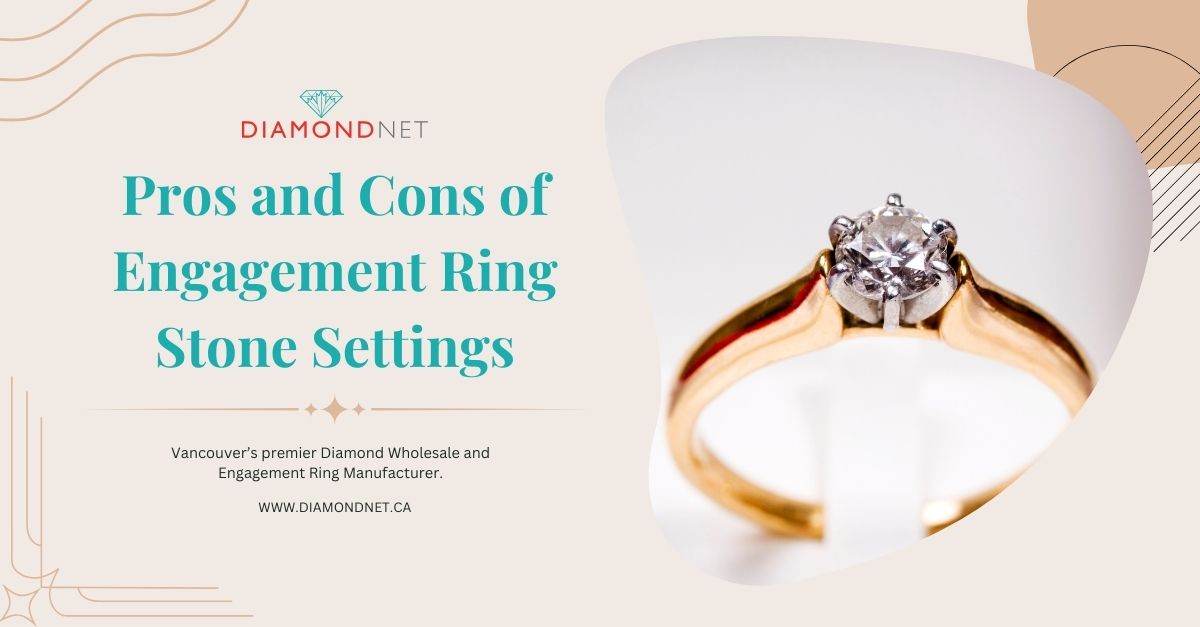Planning a wedding is a joyful time—but it’s equally important to make sure every guest feels welcome and included. That means thinking beyond aesthetics to meet a range of accessibility needs.
From selecting an accessible venue to considering mobility devices and sensory sensitivities, inclusive wedding planning helps everyone feel at ease. In this guide, you’ll find practical tips to help you create a celebration that’s not only beautiful, but also disability-friendly—so that every loved one can fully enjoy your big day.

Here is the Quick Answer:
An inclusive wedding ensures every guest—regardless of ability—feels welcomed and celebrated. In 2025, that means choosing accessible venues, creating mobility-friendly layouts, offering sensory-friendly spaces, and communicating clearly about guest needs. From accessible transportation to inclusive entertainment, thoughtful planning makes your day more joyful for everyone. Even details like custom, comfortable rings from DiamondNet can reflect care and accessibility. When inclusion is woven into every part of your wedding, it becomes a true celebration of love—for all.
What are some inclusive wedding planning tips?
clusive wedding planning means creating a celebration where every guest feels valued and can participate with ease—no matter their needs or abilities.
Here are some essential ways to make your wedding more welcoming and accessible for all.
Venue Accessibility: Choosing the Right Venue for All Guests
Selecting the right venue is one of the most important steps in accessible wedding planning.
Prioritise locations that offer ramps, elevators, wide walkways, and accessible restrooms. Ensure the space can comfortably accommodate mobility devices and has clearly marked, nearby parking for guests with physical challenges.
If the venue has multiple levels, check that elevators or lifts are in place and easy to access. For outdoor ceremonies, look for level ground and solid walkways to prevent difficulties with navigation.
When exploring wedding venues, ask about their compliance with Canadian accessibility standards, such as the CSA B651 and the AODA. A venue that meets or exceeds these guidelines is more likely to offer a safe and welcoming experience for all your guests.
Communication with Guests: Addressing Specific Needs and Accommodations
Clear communication is key to making your wedding inclusive. Reaching out to guests early allows you to understand and accommodate their specific needs with care and intention.
Add a question to your RSVP cards or online forms asking guests if they require any accessibility accommodations—such as mobility support, sensory considerations, or visual and hearing assistance. For more personal communication, reach out individually to guests you know may benefit from additional support.
Common requests may include preferred seating arrangements, sign language interpretation, large-print or braille materials, or a designated quiet area during the ceremony. Gathering this information in advance allows you to make thoughtful decisions that reflect your guests’ comfort and dignity.
By planning ahead and asking the right questions, you send a clear message: everyone is welcome, and every detail matters.
Seating Arrangements: Designing an Inclusive Layout
Ensuring your wedding accommodates all guests comfortably begins with thoughtful seating arrangements—especially for those using mobility aids. Here’s how to design a layout that’s welcoming for everyone:
1. Plan for Mobility Devices
Leave ample space between aisles and tables so guests with wheelchairs, scooters, or walkers can move freely. Keep pathways wide and unobstructed for easy navigation.
2. Choose an Accessible Reception Layout
Opt for round tables with plenty of space in between. This allows guests with different mobility needs to engage with others comfortably and move around without difficulty.
3. Prepare for Outdoor Conditions
If your ceremony or reception is outdoors, ensure the ground is even and firm. Avoid gravel or grass that can be difficult to cross. Temporary flooring can help create safe, stable walkways.
4. Coordinate with Your Venue
Provide the venue with a list of accessibility needs in advance. They can assist in reserving specific areas, managing spacing, and making any needed adjustments before the event.
By prioritising comfort and access in your layout, you’ll help ensure every guest can relax and fully enjoy your celebration.

Sensory Considerations: Creating a Comfortable Environment for All
An inclusive wedding also means being mindful of sensory sensitivities. From lighting to sound and scent, small adjustments can make your celebration more comfortable for guests with autism, PTSD, or sensory processing conditions.
Use Soothing Lighting
Avoid harsh or flashing lights. Choose soft, ambient lighting to create a calm atmosphere. Dimmer switches can be helpful for adjusting brightness as needed.
Keep Sound Levels Balanced
Loud or layered sounds can be overwhelming. Ask your DJ or sound technician to maintain a steady volume, especially during speeches and transitions. Offering noise-cancelling headphones or earplugs can be a thoughtful gesture for guests who may need them.
Provide a Quiet Zone
Set aside a quiet space away from the crowd where guests can take a sensory break. A small lounge with soft lighting, comfy seating, and minimal noise can make a big difference for those who need to reset.
Limit Strong Scents
Heavy floral arrangements or scented candles may cause discomfort for some guests. Consider using fragrance-free décor or choosing subtle, non-irritating scents to keep the environment gentle and allergy-friendly.
Minimise Sensory Triggers
If you know specific triggers—such as bright patterns, strobe lights, or crowded entrances—plan around them. Being aware and making small adjustments shows your guests that their comfort matters.
By planning with sensory needs in mind, you create an event where every guest feels relaxed, respected, and able to fully celebrate with you
Accessible Transportation: Helping Everyone Arrive with Ease
Transportation is often overlooked, but it plays a big role in how smoothly your wedding runs—especially for guests with mobility challenges.
Offer Accessible Travel Options
Coordinate accessible transportation such as wheelchair-friendly shuttles or vans. If you’re hiring a service, confirm in advance that vehicles meet mobility needs and are equipped with ramps or lifts.
Share Clear Directions and Drop-Off Points
Let guests know ahead of time where accessible parking, entrances, and drop-off zones are located. Include these details on your website, invitations, or RSVP confirmations to reduce confusion and stress on the day of.
Provide Multiple Transportation Choices
Offering a mix of options—such as rideshare, shuttle service, or pre-arranged pickups—gives guests flexibility and helps ensure no one is left behind.
Use Signage for Better Navigation
At the venue, place clear signs directing guests to accessible entrances, parking areas, and exits. Friendly volunteers or ushers can also assist in guiding guests who need extra support.
Thoughtful planning around transportation not only reduces barriers—it also sends the message that everyone’s comfort and safety is a priority.
Inclusive Wedding Entertainment: Making Joy Accessible for Everyone
Entertainment is the heartbeat of any wedding—but it should be inclusive, too. With a bit of creativity, you can offer experiences that all your guests can enjoy, regardless of ability.
Make Music More Inclusive
Hire a DJ or band that’s open to adapting their setup. Offer visual cues for key moments, and provide captioning for song lyrics if possible. Keep the dance floor easily accessible, with room for mobility aids.
Create Accessible Fun Zones
Set up activities that are engaging but don’t rely on physical ability—like a digital guestbook, an open photo booth with props at reachable heights, or trivia games. This encourages all guests to participate at their own pace.
Consider Neurodiverse Guests
Loud or chaotic entertainment can be overwhelming for some. Offering a quiet alternative—like a chill-out lounge or a low-key craft table—gives guests options based on their comfort level.
Think of Everyone When Planning
From game stations to visual storytelling and inclusive playlists, variety is key. Choose entertainment that reflects the diversity of your guests and makes everyone feel seen and included.
Entertainment should never feel exclusive. With thoughtful choices, you’ll create joyful moments that truly include everyone.
Conclusion
Planning an accessible wedding is about more than logistics—it’s about showing love, care, and respect for every guest. By considering accessibility in your venue, seating, entertainment, and communication, you’re making sure that everyone feels welcome and included.
And when it comes to the details that matter most—like the ring—comfort and inclusivity matter there, too. At DiamondNet, we specialise in custom engagement rings designed for comfort and accessibility, ideal for individuals with limited dexterity or unique design needs.
You can also schedule an accessible visit to our showroom for a relaxed and supportive experience. Our team is here to guide you through every step in a space that’s built with all guests in mind.
Let your wedding be a reflection of who you are—thoughtful, inclusive, and full of heart.



